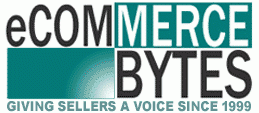
In today’s column, Don Heiden, aka the Auction Professor, talks about his experiences with consignment selling – including the most expensive item he sold on behalf of a client – and some things resellers should consider before taking on the task of selling for other people.
If you have resold for any real length of time, I am sure you have had someone ask you to sell something for them online. In many cases friends and family may not want to mess with the hassle of eBay or Amazon themselves.
Back when I first started selling it happened so much that I wrote out a policy on the fees, and breakdowns so that the next time I was asked I would be ready.
From there I ran with the idea of commission-based selling, and it turned into an easy way to make a profit without actually using my own money. People would just bring their items to me, and if I felt there was some money to be made, I would agree to sell it for them on a commission based agreement. Simply put, if they did not want to sign the agreement, I would not sell their items. (Having a contract that a lawyer has reviewed is a necessity with this type of selling.)
There are of course many risks involved selling items for other people, and especially dealing with family members. Some resellers will not sell items for family members just out of fear of it coming back to bite them later.
But there are many other options besides selling items from your family and friends. Some resellers I know run a large percentage of their business selling by this method. They advertise what they do, and random people contact them to sell their belongings.
It is a very similar setup to what is portrayed in the movie “The 40-Year-Old Virgin” with the store aptly named “We Sell Your Stuff On eBay.”
Over the years I have sold hundreds of items for other people. The highest valued item I have ever sold was sold on a commission basis. It was a Provost Motorhome valued at almost $300,000. Though I was very nervous dealing with an item of that value, in the end it worked out great.
One of the most lucrative commission-based deals I have had was selling gold jewelry for a very large pawn shop. In that case, I simply went to their store and took pictures of the items I wished to sell. I was given the appraisal certificate as well, which I would scan.
In that deal, the owner gave me the amount he had to have out of each piece. I was free to sell his items for whatever I wished, as long as I paid him the amounts we agreed upon. I had no monetary investment in any of the items, so all I was out was my time.
It was a long-term deal that only ended when I moved. I have had similar arrangements with other businesses as well. In one case I worked out a deal with a local second-hand store to sell their better items on eBay for them.
In that case they allowed me to take the items with me instead of leaving them at the store. It is always a risk in my opinion to allow an item you are selling to be held by someone else. If something were to happen to that item, it would be on me as the seller if the item sells.
Back in the early days of eBay, old hood ornaments from cars were an easy one for most resellers. The junk yards back in those days were not online at all. So, it was easy to work out a deal with them to sell the better ones on eBay for them.
Sadly those days are long gone since most automotive junk yards sell online themselves. Today though there are just as many opportunities to find these sorts of connections. A great example would be the many architectural salvage companies across the country.
There are several here locally, and they have worked out deals with most of the property management companies and real estate business around the area. In some cases, the salvage company can out right buy the items, while in other cases, they sell them on a commission basis.
For some people wanting to expand and grow their business, but do not having access to enough merchandise, this sort of arrangement may be just the thing needed. All it may take is a little leg work, and some phone calls.
Just remember to always get everything in writing, and to spell everything out. You want no confusion between you and the person whom you are selling the items for. Make sure to go over the whole thing with them, and make sure they understand the monetary break down (the costs and breakdown of profits) before you ever agree to sell anything for them.
If you do it safely you will have nothing to lose, and potentially a lot to gain.




OK all that is fine information but I have one HUGE question: what happens when the sale is reported on form 1099 IRS at end of year? Let’s say you sold $100,000 worth of consignments during tax year 2022. I pay over 41% total taxes on the net income, how would I resolve this? I doubt simply telling the IRS these were consignments would work. Do I have to report each consignor’s tax number and amount to the IRS and if so would all those consignor’s now have to report the income?
I got tired of reading all of what I consider “fluff” about personal experiences through this article and skipped to the end, where the paragraph
“Just remember to always get everything in writing, and to spell everything out. You want no confusion between you and the person whom you are selling the items for. Make sure to go over the whole thing with them, and make sure they understand the monetary break down (the costs and breakdown of profits) before you ever agree to sell anything for them.”
says pretty much everything. Except it doesn’t. It only addresses the BEGINNING. In addition to a signed contract to sell and remit funds to your consignors, the Professor says NOTHING about covering your own behind when you finish the deal with your consignor (documenting where the money went after the sale(s) was accomplished). You need to have a written form which should include a line for each item, short name or description or refer to its info on the original contract, where it sold, sale number/info if applicable, how much it sold for. You might also want the Consignor to initial it when you give him/her the funds. Be sure to keep a copy. That form should document what income you received from the deal and what you gave your consignor. Your consignor gets to take care of handling his/her own income.
One last thought – as for “reporting each consignor’s tax number and amount to the IRS” – that question is best answered by a tax professional. Use a “follow up form” as I suggested in my earlier post to account for the consigned items and what happened to the money you got from selling them.
Your tax professional may also be able to offer a way to get around treating the money as “income” since actually it was not YOUR income, it just passed through you on its way to your Consignor. At the very least, I WOULD THINK (again, ask the Tax pro) , since you had to pay your Consignor, you may be able to claim what you paid as an “EXPENSE” that will cancel out “Income,” making it balance out at $0, except for the amount you kept as an AGENT’s fee for being a middle man doing the selling.
Yes, indeedy, a Consignor is required by law to report the income s/he received from selling items, regardless of how they were sold, just like any other kind of money they acquired. But someone else’s tax reporting isn’t your concern. Just make sure your own records are squeaky complete.
Hey Don :
How about showing us that shrew`d contract
that keep you in the green & the IRS off your as…
So long ago…………….